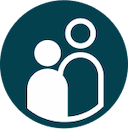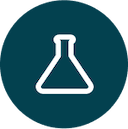Python Fundamentals for Beginners
Loading...
Course

Python Fundamentals for Beginners
This Python course provides a beginner-friendly introduction to Python for data science. Practice through lab exercises, and you'll be all set to create your first Python script!
Self-Paced
Mentored
Beginner
Duration
Kickstart your Python learning and get started with data science at the same time with this beginner-friendly, self-paced course. No prior programming skills are required. Python is the standard programming language used by data scientists and the demand for skilled individuals who can apply their Python knowledge to data science has never been higher.
In this course, you will learn basic programming concepts using Python such as native data types; data structures like lists, tuples, and dictionaries; programming logic including conditions, branching, and loops. You will also learn about the gears that make up the engine of your application. Plus, you will explore functions and classes, those chunks of executable, reusable code that control the behavior of your application.
As you progress in the course, you will use a variety of Python libraries commonly used in data science such as Pandas, Numpy, and BeautifulSoup. You will learn to automate data collection with Python using a technique called web scraping and application programming interfaces, or APIs. Plus, you will explore the uses Jupyter Notebooks for your hands-on labs, another popular data science tool.
Overall, by the end of this course, youll feel comfortable creating basic programs, working with data, and automating tasks using Python by producing several artifacts for your portfolio to prove it.
This course comprises five purposely designed modules that take you on a carefully defined learning journey.
It is a self-paced course, which means it is not run to a fixed schedule with regard to completing modules. It is anticipated that you will complete the course in 25 hours. However, as long as the course is completed by the end of your enrollment, you can work at your own pace. And dont worry, youre not alone! You will be encouraged to stay connected with your learning community through the course discussion space.
The materials for each module are accessible from the start of the course and will remain available for the duration of your enrollment. Methods of learning and assessment will include discussion space, videos, reading material, quizzes, hands-on labs, quizzes and final assignment.
Once you have successfully completed the course, you will earn your IBM Certificate.
You will be able to:
- Combine fundamental programming concepts such as data types, data structures, expressions, and variables to write Python code that executes simple tasks
- Write Python code using programming logic including branching, loops, functions, objects, and classes
- Construct data science models using Python libraries including Pandas, Numpy, and BeautifulSoup
- Import web data into a Python application using APIs and web scraping
- Aspiring data scientists
- Absolute beginners in programming
- Learners looking for practical handson experience
- Basic computer skills
Course Outline
Why Learn with SkillUp Online?
We believe every learner is an individual and every course is an opportunity to build job-ready skills. Through our human-centered approach to learning, we will empower you to fulfil your professional and personal goals and enjoy career success.
Reskilling into tech? We’ll support you.
Upskilling for promotion? We’ll help you.
Cross-skilling for your career? We’ll guide you.

Personalized Mentoring & Support
1-on-1 mentoring, live classes, webinars, weekly feedback, peer discussion, and much more.

Practical Experience
Hands-on labs and projects tackling real-world challenges. Great for your resumé and LinkedIn profile.

Best-in-Class Course Content
Designed by the industry for the industry so you can build job-ready skills.

Job-Ready Skills Focus
Competency building and global certifications employers are actively looking for.
FAQs
The fundamentals of Python include its native data types, expressions, variables, and core programming logic such as branching, loops, functions, objects, and classes. These fundamentals of Python form the foundation for solving problems, writing efficient code, and preparing for more advanced concepts in data science.
Yes, strings are one of the fundamental data types in Python, alongside integers, floats, and booleans. In this Python fundamentals course, you will practice string operations in dedicated hands-on labs.
Beginners can start with a Python course for beginners like this one, which provides step-by-step guidance, practical labs, and projects. The Python fundamentals certification included helps you validate your progress and show proof of your skills.
Yes, if you commit time daily, you can cover the fundamentals of Python programming within 30 days. This Python basics online course is self-paced, allowing you to structure your learning around your schedule.
For beginners, Python is often easier than Java because of its simpler syntax and readability. This makes it the preferred programming language for those just starting with coding or exploring data science.
ChatGPT can help answer coding questions and explain concepts, but a structured Python fundamentals course with labs and projects is more effective for mastering the skills you need.
The IBM Python fundamentals for Beginners course is among the best options for newcomers. It balances theory, hands-on exercises, and portfolio projects, making it a strong choice compared to other Python training for beginners.
The fees depend on the platform and certification offered. This Python basics online course provides great value by including labs, projects, and a recognized certificate.
You will receive your IBM Certificate once you complete all modules, quizzes, and labs successfully.
No prior programming experience is required. The Python fundamentals course is designed as a true Python course for beginners.
The course covers essential libraries used in data science including Pandas, Numpy, and BeautifulSoup. These are introduced with practical, hands-on labs.
You will complete labs on Python basics, data structures, programming fundamentals, data loading with Pandas, numerical operations with Numpy, web scraping, and APIs. These will help reinforce the fundamentals of Python programming.
Yes, you will practice automating data collection through web scraping and working with APIs, both key skills for Python classes for data science.
Yes, all labs are performed in Jupyter Notebook, a popular tool for learning Python step by step and applying it in data science workflows.
Yes, you will create several artifacts such as Python scripts, data handling tasks, and small projects. These can be showcased as part of your portfolio to demonstrate your skills.
Course Offering
Type of certificate
IBM Certificate
About this course
05 Modules
06 Skills
Includes
Discussion space
25 Hands-on labs
16 Practice quizzes
05 Graded quizzes
01 Final exam
Create
REST APIs & Request HTTP
Web Scraping
Exercises to explore
Python Data Structures
Python Programming Fundamentals
Reading & Writing Files
Pandas
This course has been created by

Newsletters & Updates
Subscribe to get the latest tech career trends, guidance, and tips in your inbox.
